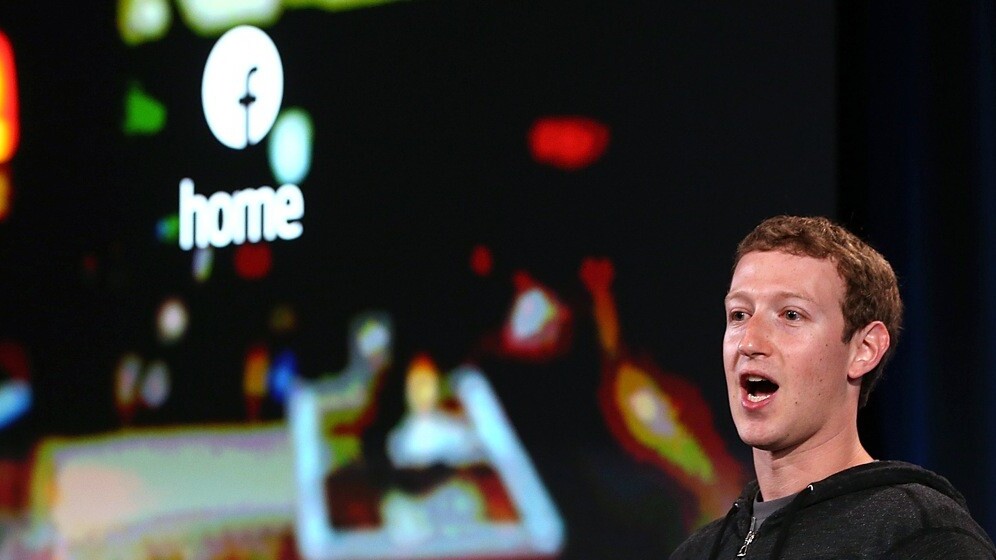
Of all the reactions so far to Facebook’s Home announcement yesterday, the one that most caught my eye was Om Malik’s cautionary missive entitled ‘Why Facebook Home bothers me: It destroys any notion of privacy‘.
In it, Om warns that Facebook Home has the worrying potential to track our every move because being ‘always on’ can mean ‘always collecting data’:
“It can start to correlate all of your relationships, all of the places you shop, all of the restaurants you dine in and other such data. The data from accelerometer inside your phone could tell it if you are walking, running or driving.”
The risk here, he warns, is that “Facebook is going to use all this data — not to improve our lives — but to target better marketing and advertising messages at us.”
Is that really such a bad thing?
It’s worth noting that while Mark Zuckerberg said yesterday that Facebook Home would be used for advertising in the future, we don’t know for sure that it will be doing the kind of tracking Om describes, (Facebook says it won’t actively track location, for example), but it’s a topic worth addressing. Even if Facebook Home doesn’t track as much as Om suggests, maybe it should.
Do you really want bad ads?
Advertising is an inconvenient reality in this world. We don’t really want it, but it’s an important factor in how the economy works and how most online services (including The Next Web and GigaOM) keep going. Most advertising is horribly targeted. Even ‘tracking cookie’ based advertising that uses the sites you visit to target which ads you see is flawed (ever visited a particular e-commerce site and then seen ads for it all over the Web for days afterwards, even though you’ve already shopped there?).
Facebook’s advertising system is praised for its impressively granular targeting system, but being able to target 28-to-34-year-old married women who like The Walking Dead is far more useful to the advertiser than the end user. It often results in terribly targeted ads when Facebook could do so much better by using more information.
I want more targeted ads. If I’m going to have to see advertising, I want it to know what I want before I do and cater to my needs. I want it to have analysed my behaviour and know that I’m probably thinking about buying a new mobile phone now, or that because I travel abroad a lot I want a good deal on travel insurance, or that because I walked an average of 7,113 steps per day last week (true story – thanks Fitbit!) I probably should go to the gym more.
Sure, there are concerns to address. As Om points out, Facebook is “a company that is known to have played loose-and-easy with consumer privacy and data since its very inception.” A ‘do not track’ option would be an important addition to such detailed analysis of our habits – it needs to be optional. Also, just like the data produced by wearable devices, there’s a risk it could be subpoenaed in court cases to find out if you were really doing what you said you were, or accessed by hackers wanting to find out what you get up to.
The uncanny valley of targeted advertising
I believe that just as with acceptance of human-like robots, there’s an ‘uncanny valley’ of targeted advertising. Many people resist it now because it’s just not targeted enough and shows its flaws when a regular shopper at Target is shown lots of Target ads, or when people who hate gambling are shown ads for poker apps because they otherwise fit the profile of the kind of person who likes gambling.
Targeted advertising will gain true acceptance when it’s so targeted that we don’t notice it any more. If Facebook Home and other apps with the potential to track our every activity and move can get us there, I’m all for it.
Also read: Facebook Home doesn’t impress, but its potential as a data collection powerhouse does
Keep up with the latest Facebook news at TNW Facebook.
Image credit: Getty Images
Get the TNW newsletter
Get the most important tech news in your inbox each week.




